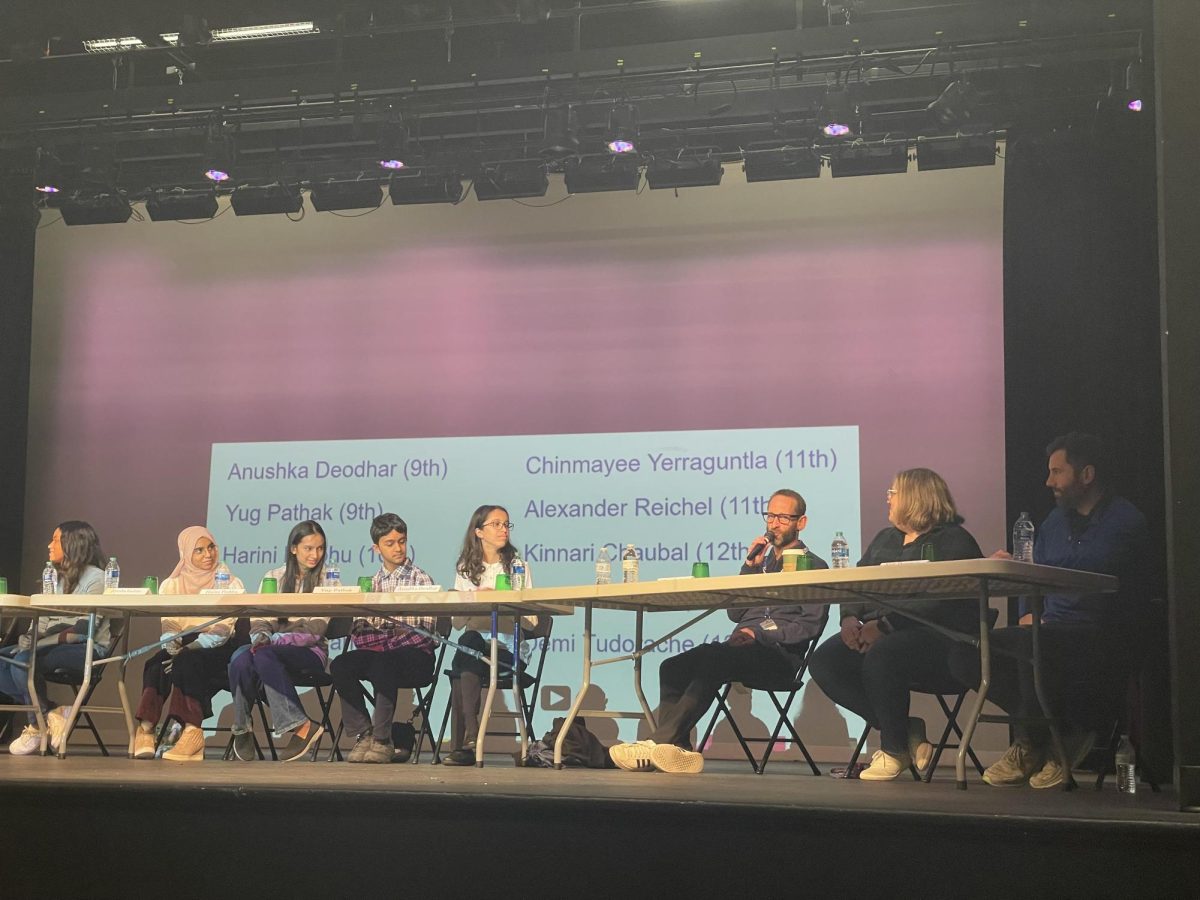On Monday, Nov. 6, 10 student panelists and Jefferson department representatives expressed their perspectives on certain questions that pertained to student wellness and success at Jefferson. Over 100 faculty members attended the town hall meeting from 9:10 to 10:15 a.m. in the auditorium, and the panel was facilitated by Jefferson’s Systems of Support Advisor, Mark Forgash.
There were five teacher representatives present, each answering questions for a different academic division (Math/CS, Science/Technology, Student Services, Humanities, and PE). Ten students—including two freshmen, two sophomores, three juniors, and three seniors—represented the student body.
“The questions were formulated by admin based on a form where teachers could submit questions [to them],” senior Cameron Ake said.
Student representatives prepared their responses to questions prior to the meeting. Some of those questions were “rapid-fire,” where panelists had to answer the question in a singular word that encapsulated their thoughts on the topic.
“There were some rapid-fire questions asking the greatest source of stress currently, or the class that brings [students] the most joy,” senior panelist Brian Zhou said.
In addition to the rapid-fire questions, other open-ended questions allowed panelists to expand their thoughts and explain their views through longer discussions and more clashes between certain topics.
“Most of the time was spent talking about longer conversations,” Zhou said. “[These questions included], ‘What have adults at [Jefferson] done to make you feel like you belong and that you have what it takes to succeed at [Jefferson]?’ and, ‘What are ways that teachers might encourage students to share in the joy of learning and reflection, rather than focusing on accumulation of points or compliance to an assignment?’”
Apart from answering questions, panelists were given a hypothetical scenario, and their responses to the scenario varied among the participants.
“The final question we were asked was a scenario, and it played into our previous discussion about academic integrity,” junior panelist Alexander Reichel said. “It was, ‘A teacher gives a test to first-period students, and by fourth-period, many students are aware of the questions on the test. What can students and staff do to mitigate this scenario to increase student-teacher trust?’ [The panelists] honestly answered this question [in the same way] as the previous.”
However, further improvements could be made to improve the effectiveness of future town hall meetings at Jefferson, like taking into consideration the external stressors students have.
“The only thing I would recommend is possibly allocating additional time to the meeting or centering future town halls around themes, such as grading, stress, community, extracurriculars, etc,” Zhou said.
Another improvement could be in the notion of question-asking and answering in future meetings.
“I would like for faculty to be allowed to ask any follow-up questions after the student panelists answered the main ones,” freshman representative Anushka Deodhar said. “Only the staff representatives were allowed to, but I think there would have been more clarity if a few faculty members in the audience could have asked follow-up questions.”
Overall, the panelists report the town hall meeting as a success and see possible ideas being implemented into the classroom in the future.
“I think the Town Hall format is great because it allows teachers to take a step back and listen to what their students have to say,” Reichel said. “I think it was successful because not only have teachers come up to me saying that they want to implement what I said into their classrooms, but I’ve actually noticed some of my classes implementing some of our suggestions.”


